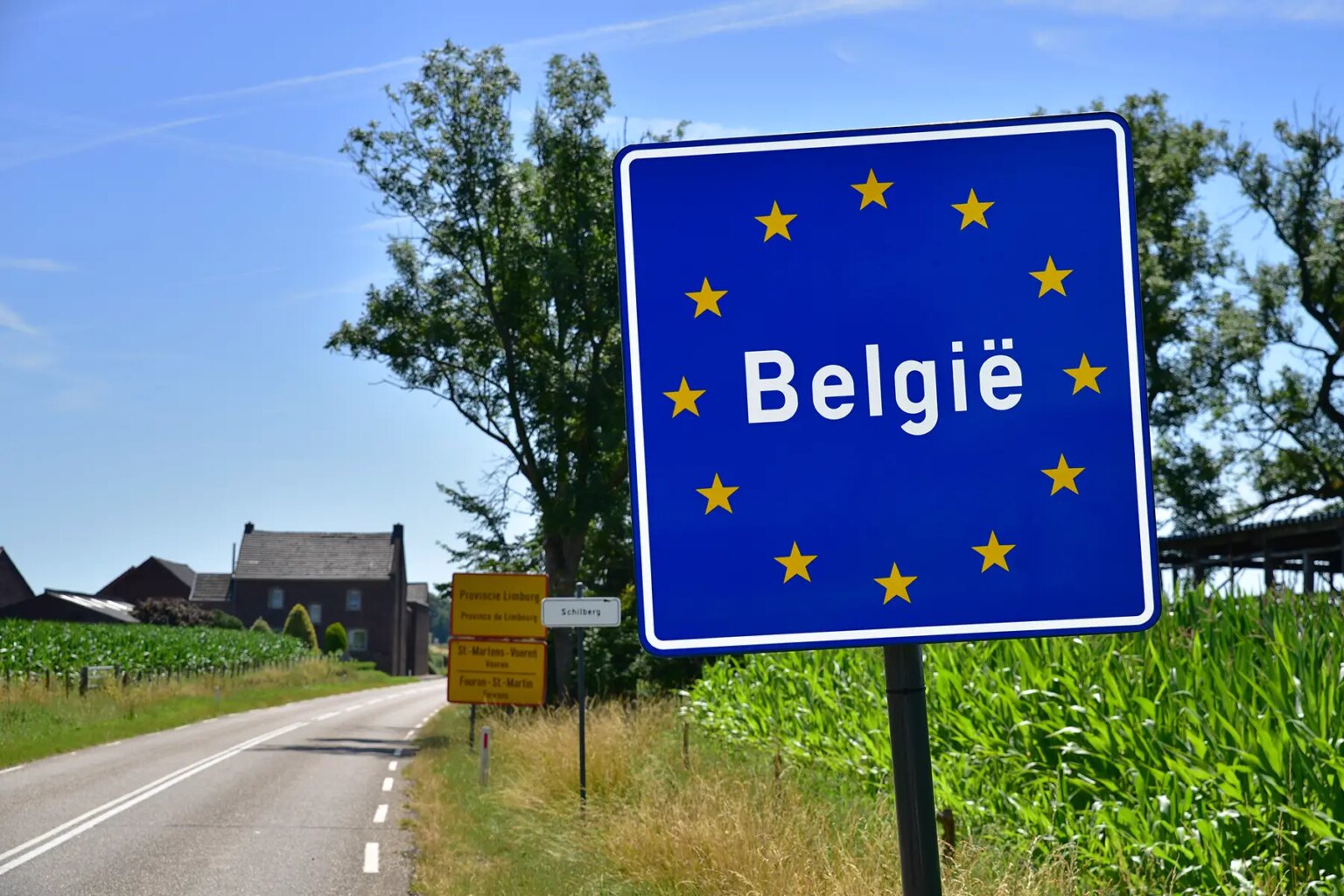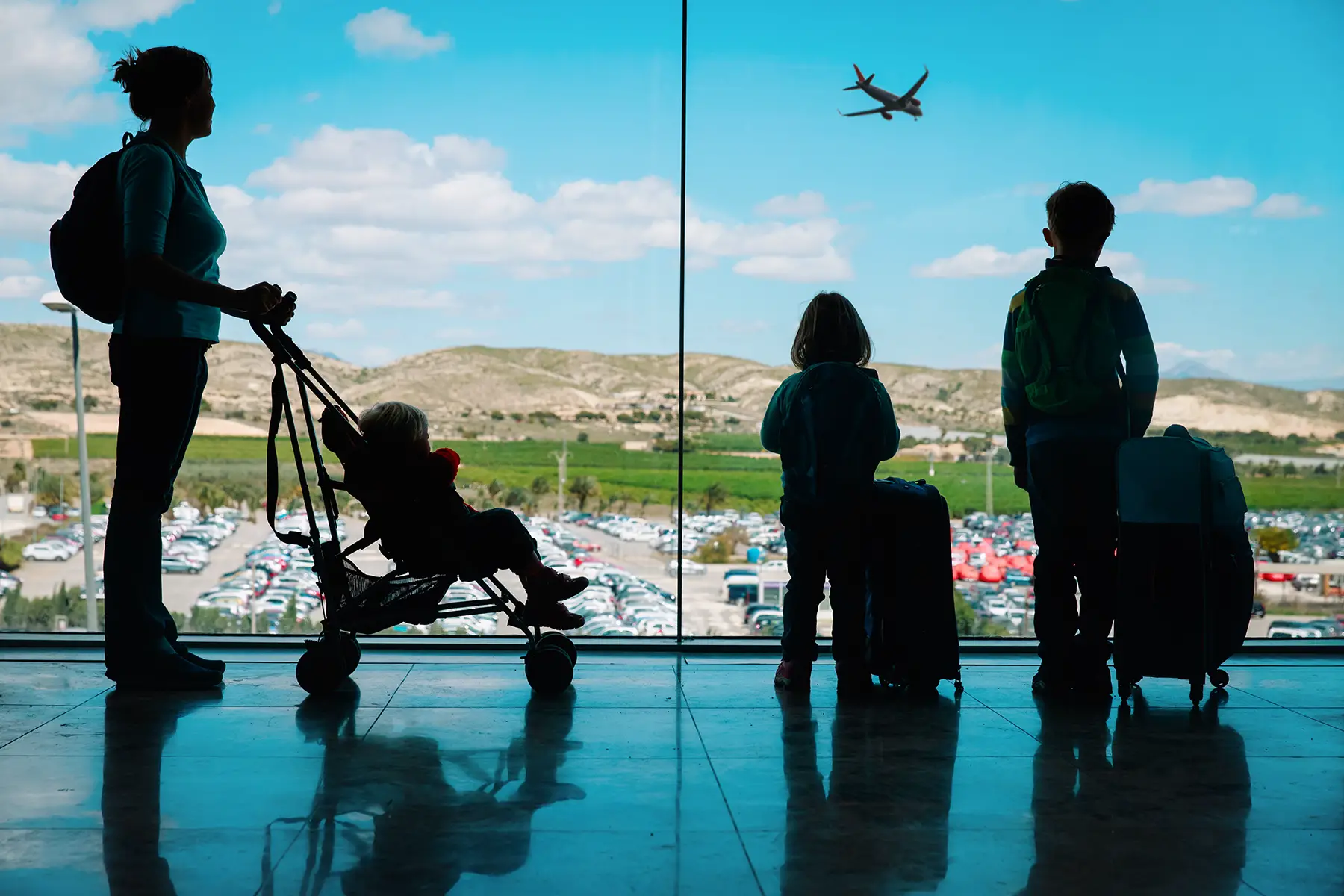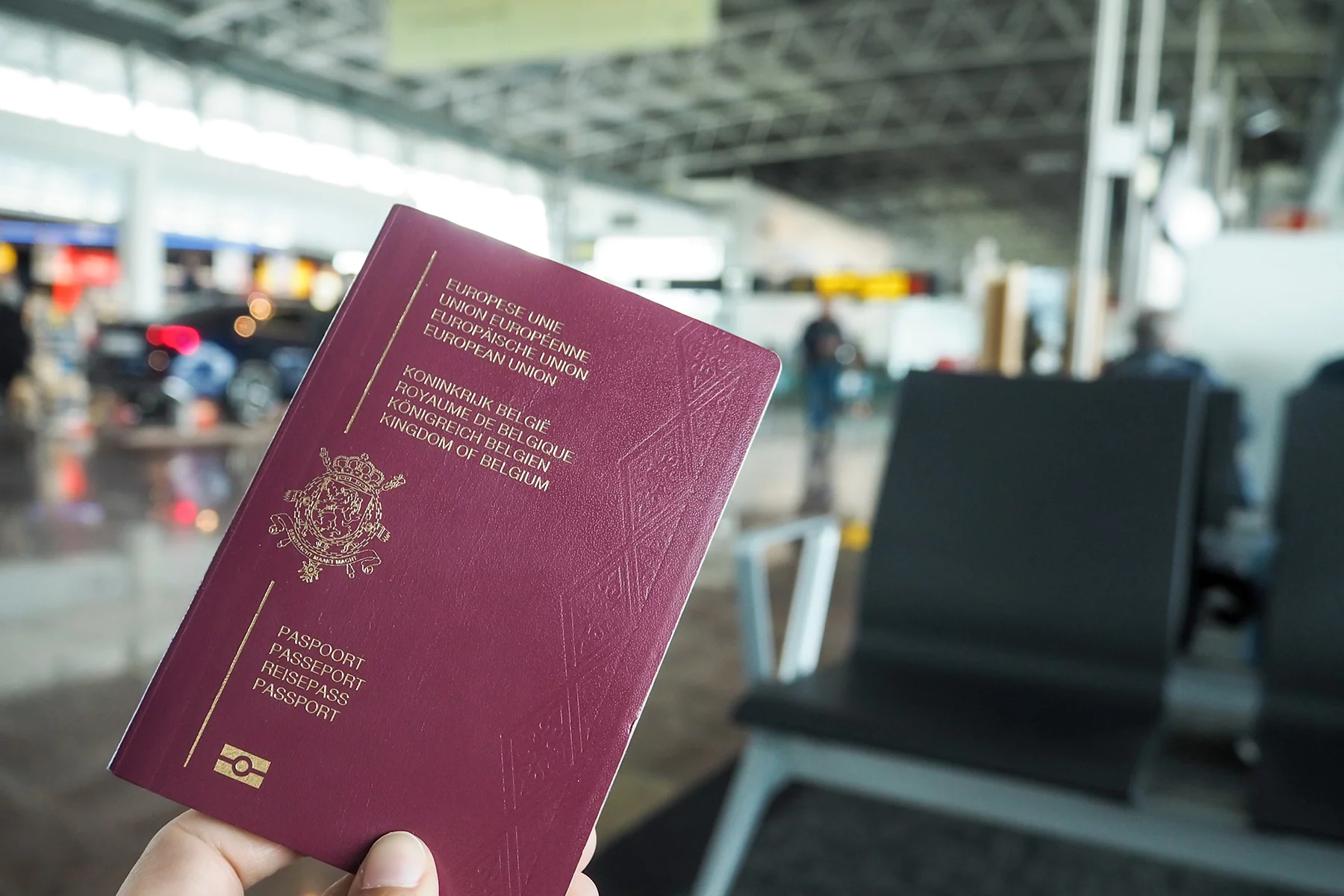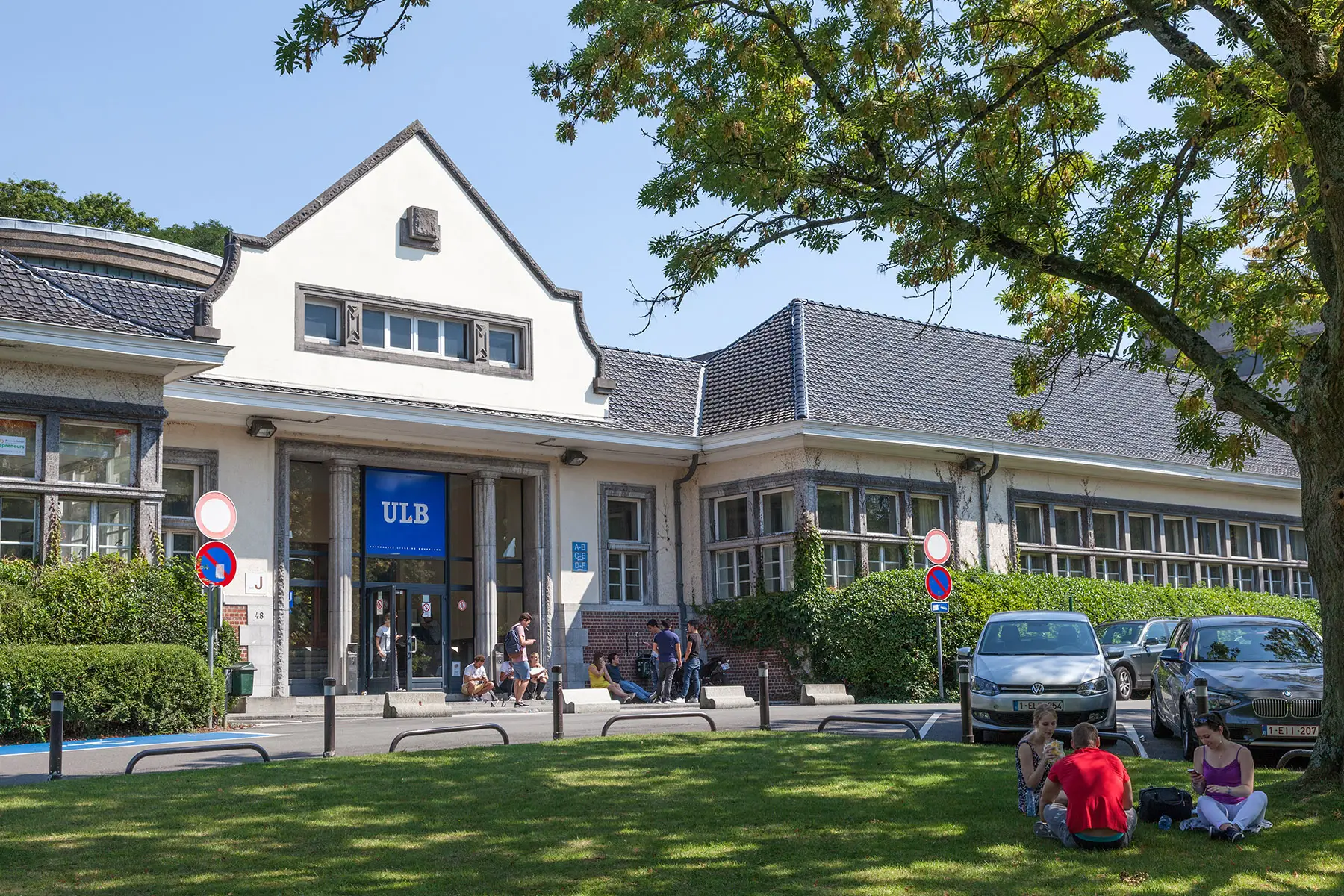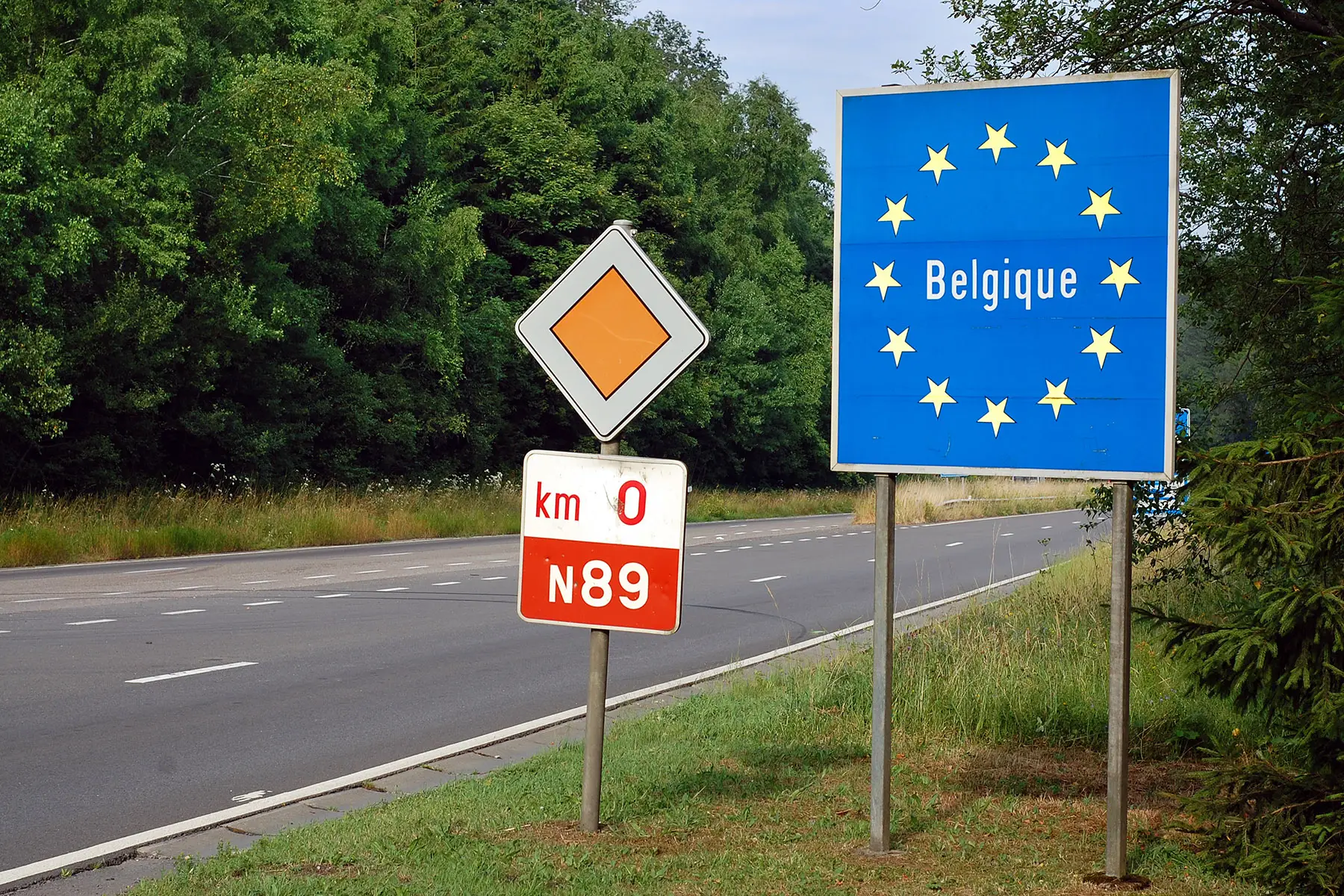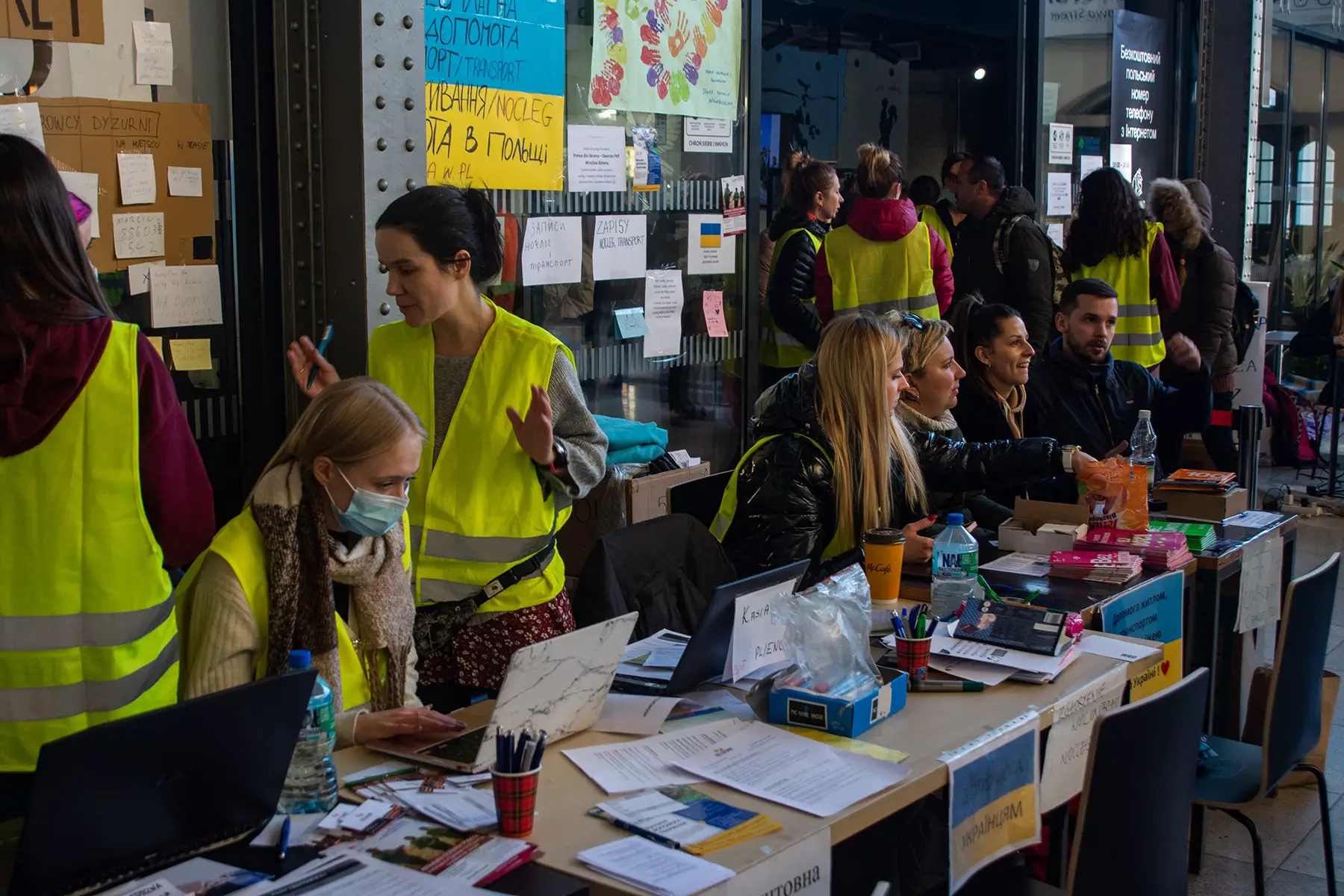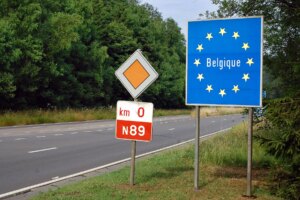Belgium is an ideal place to experience a diverse European life. As it borders France, Germany, and the Netherlands, its unique culture enjoys elements of each of these countries. It’s also home to several historic cities, Michelin-star restaurants, and big music festivals. With 67 kilometers of coastline and the rugged beauty of the Ardennes, the country also offers something for nature lovers. What’s more, it has some of the best healthcare in Europe, affordable housing, and a high standard of living.
If that’s enough to convince you to visit or move there, one of the first things you’ll need to do is arrange your visa for Belgium. Read on to find out whether you need one, how to apply, and the costs involved.
- Immigration in Belgium
- Who needs a Belgian visa?
- Types of visas in Belgium
- Short-stay Belgian visas
- Long-stay Belgian visa
- Belgian visas for digital nomads and remote workers
- Asylum seekers and refugees in Belgium
- Arriving in Belgium
- Residence and citizenship in Belgium
- Appeals and complaints
- Useful resources
Expat Management Group
Moving to Belgium? Take the stress out of your move with Expat Management Group, the immigration specialists. With a global network of lawyers who will assist you with all your expatriation needs, you’ll start your Belgian life right. Whether you are a company transferring employees, bringing your family to join you in Belgium, or are considering getting a Belgian passport, do so with Expat Management Group.
Immigration in Belgium
As the primary base of the European Union and its institutions, Belgium has seen an increasing number of EU citizens move and settle here. In 2024, the country had over 1.6 million foreign nationals.
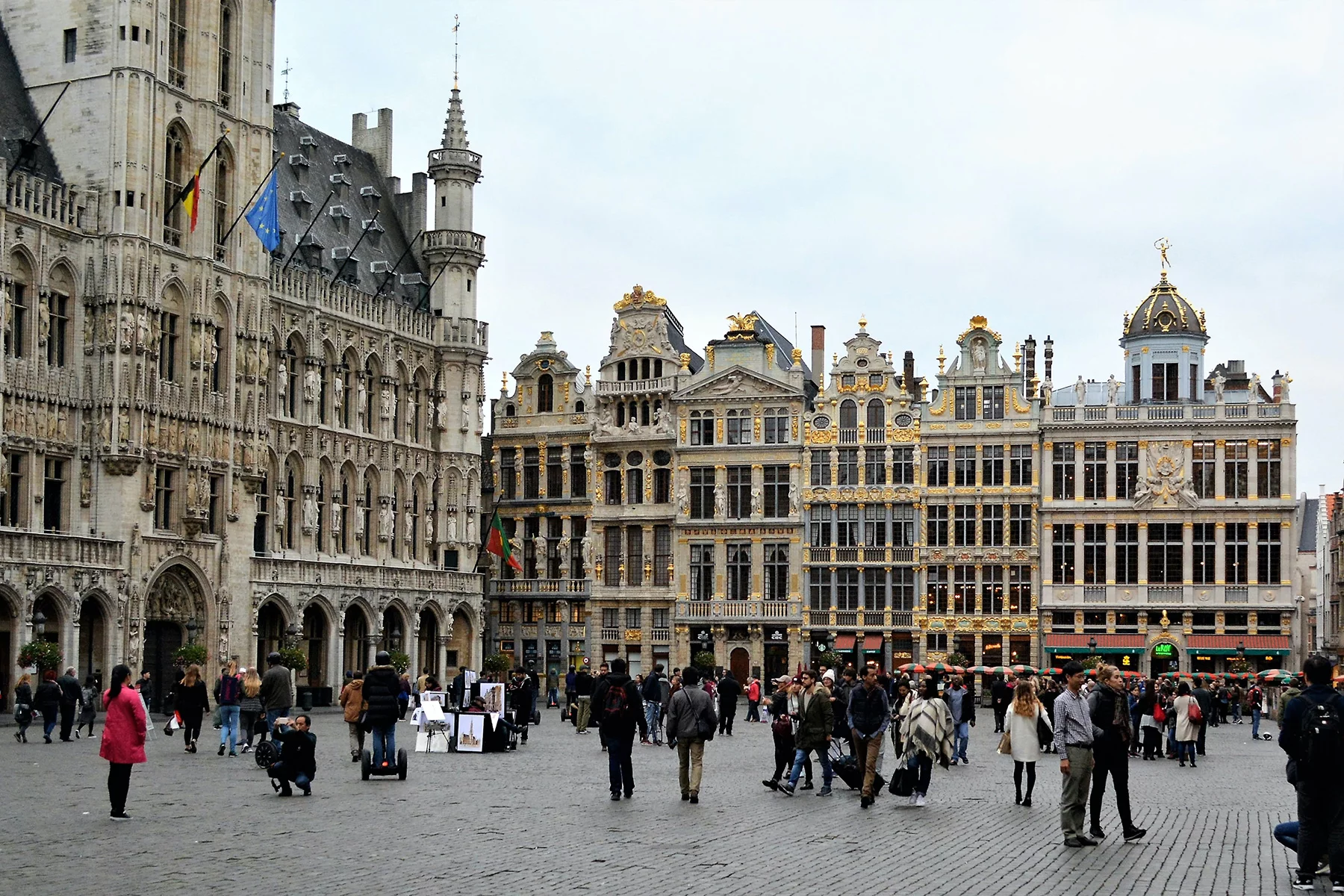
The Belgian government has set rigorous requirements, particularly for citizenship applications. These requirements are especially relevant for non-EU/EFTA nationals who want to settle in Belgium. EU/EFTA nationals, subject to the Schengen Agreement, can travel, live, and work in Belgium visa-free.
Immigration and visa formalities in Belgium are overseen by the Immigration Office (Dutch: Vreemdelingenzaken, French: Office des étrangers), which is part of the Federal Public Service (FPS) for Foreign Affairs. Recent international immigration statistics for the country show a decline, mainly because of restricted mobility during the COVID-19 pandemic:
| Year | Immigration numbers |
| 2021 | 165,534 |
| 2022 | 233,629* |
| 2023 | 194,887 |
*This higher number was due in part to Russia’s invasion of Ukraine – 57,514 of this total were Ukrainian nationals.
Who needs a Belgian visa?
EU/EFTA nationals
As a citizen of an EU or EFTA country (EU plus Iceland, Liechtenstein, Norway, and Switzerland), you do not need a visa to travel, study, live, and work in Belgium. You may, however, have to report your arrival to the local town hall within 10 days. This is usually the case if you’re staying in private accommodation instead of a hotel. The municipality will give you the Annex 3ter form (official declaration of arrival) that entitles you to stay in Belgium for up to three months.
If you plan to stay in Belgium for longer than 90 days (three months), you will need to register with the Immigration Office in your city. You’ll also need to apply for a Belgian residence (eID) card.
Citizens of EU countries that are not part of the Schengen Agreement may have to show their passports upon arrival. These countries include Bulgaria, Croatia, Cyprus, Ireland, and Romania. Regardless, the EU recommends all its citizens carry a passport or national ID card when traveling between the member states.
UK citizens after Brexit
The UK officially ended its EU membership on 31 January 2020. As a result, since 1 January 2021 – the end of the transition period – UK citizens must follow different rules for EU travel.
Currently, UK citizens do not require a visa for short visits to Belgium totaling up to 90 days (within a 180-day period). This also applies to certain work-related travel, such as attending a conference, meeting, or training. For other work or business activities, study, or longer stays, UK citizens must apply for a Belgian visa.
Ukrainian citizens
Belgium introduced special measures after the start of the Russian offensive in Ukraine. Ukrainian citizens with a biometric passport can currently enter and stay in Belgium for 90 days (three months) without a visa. This period can be extended to 180 days at the local Belgian municipality if a safe return is not possible.

Ukrainian citizens who intend to come to Belgium for a longer stay must apply for a type D (long-stay) visa. The Belgian Consular Department and Visa Section in Kyiv are currently closed. However, applications can be submitted at the Belgian Consulate General in Warsaw (Poland) or a Belgian embassy or consulate in a non-EU country. These measures may change as the situation in Ukraine evolves.
Non-EU/EFTA nationals
In most cases, third-country nationals (non-EU/EFTA citizens) will need to apply for a visa to visit or stay in Belgium. Residents of some countries are exempt from visa requirements for short stays of under 90 days (three months). These include countries such as Australia, Canada, Japan, the US, and several others with which Belgium has bilateral visa waiver agreements.
Regardless of visa waivers, third-country nationals may still require travel authorizations or permits. They also need to meet the general Schengen entry requirements. You can check the conditions that apply to your country with your local Belgian embassy or consulate.
All third-country nationals must apply for a visa if they plan to stay in Belgium for more than 90 days (three months). If you intend to work in Belgium, you’ll additionally have to apply for a work permit.
Non-EU/EFTA nationals joining family members in Belgium
Belgium has a family reunification procedure for non-EU/EFTA nationals who want to join a close family member living in Belgium. Spouses, partners, and children can use this procedure. However, the conditions differ slightly depending on whether the Belgian resident is an EU/EFTA or a third-country national.
As part of this procedure, you’ll need to apply for a type D visa (for a long-term stay) at your local Belgian embassy or consulate. Upon arrival in Belgium, you’ll need to register with your local municipality and apply for a Belgian residence (eID) card.
Types of visas in Belgium
Depending on the purpose of your visit to Belgium, you can apply for one of the following types of visa:
- Short-stay visas – These allow stays of up to 90 days (three months) in Belgium. They cover purposes such as transit, travel, short-term business, study, or medical trips.
- Long-stay visa – This is issued for all stays longer than 90 days (3 months), regardless of whether the holder plans to live in Belgium for a fixed period or settle there permanently.
The requirements, costs, and application procedures for these visas are explained below.
Short-stay Belgian visas
Belgium issues two types of short-stay visas:
Short-stay visits can be for different purposes, including tourism, visiting family or friends living in Belgium, business visits, short study trips, or visits for medical care.
Visas for traveling or visiting family in Belgium
To travel to Belgium or visit friends or family living there, you’ll need to apply for a type C Schengen visa. However, some countries have bilateral visa waiver agreements with the Schengen Area that exempt their citizens from short-stay visa requirements.
Visa applications for travel and visiting family
You’ll need to apply for the visa at your local Belgian embassy or consulate at least 15 days before your date of travel. However, visa procedures can take longer, particularly during busy periods with many applicants. Sometimes you may need to submit extra documents.
So, it’s best to submit your application 30–60 days earlier if you already have all the details regarding your stay. You’ll need to provide the following documents to complete your application:
- Filled-in visa application form
- Recent passport photograph
- Passport valid for the duration of your visit
- Flight details for your roundtrip or complete travel itinerary
- Travel health insurance details
- Proof of accommodation in Belgium, such as hotel reservations
- If you’re visiting relatives or friends in Belgium, a letter of invitation and evidence of your family relationship
- Proof of financial means to support your stay
- Evidence of employment status
You’ll also need proof that you’ve paid the visa application fee of €90 (€45 for children aged 6-12). The visa application is free for children under six.
Visas for short business, study, medical, or official visits to Belgium
You can also apply for a type C visa for other short visits to Belgium. The duration, procedure, and cost of these visas are similar to those for tourism and family visits. The main difference is the purpose of the visit, which can be:
- Participating in work or business training
- Carrying out a business transaction
- Attending a conference or seminar
- Joining a short-term study course or traineeship
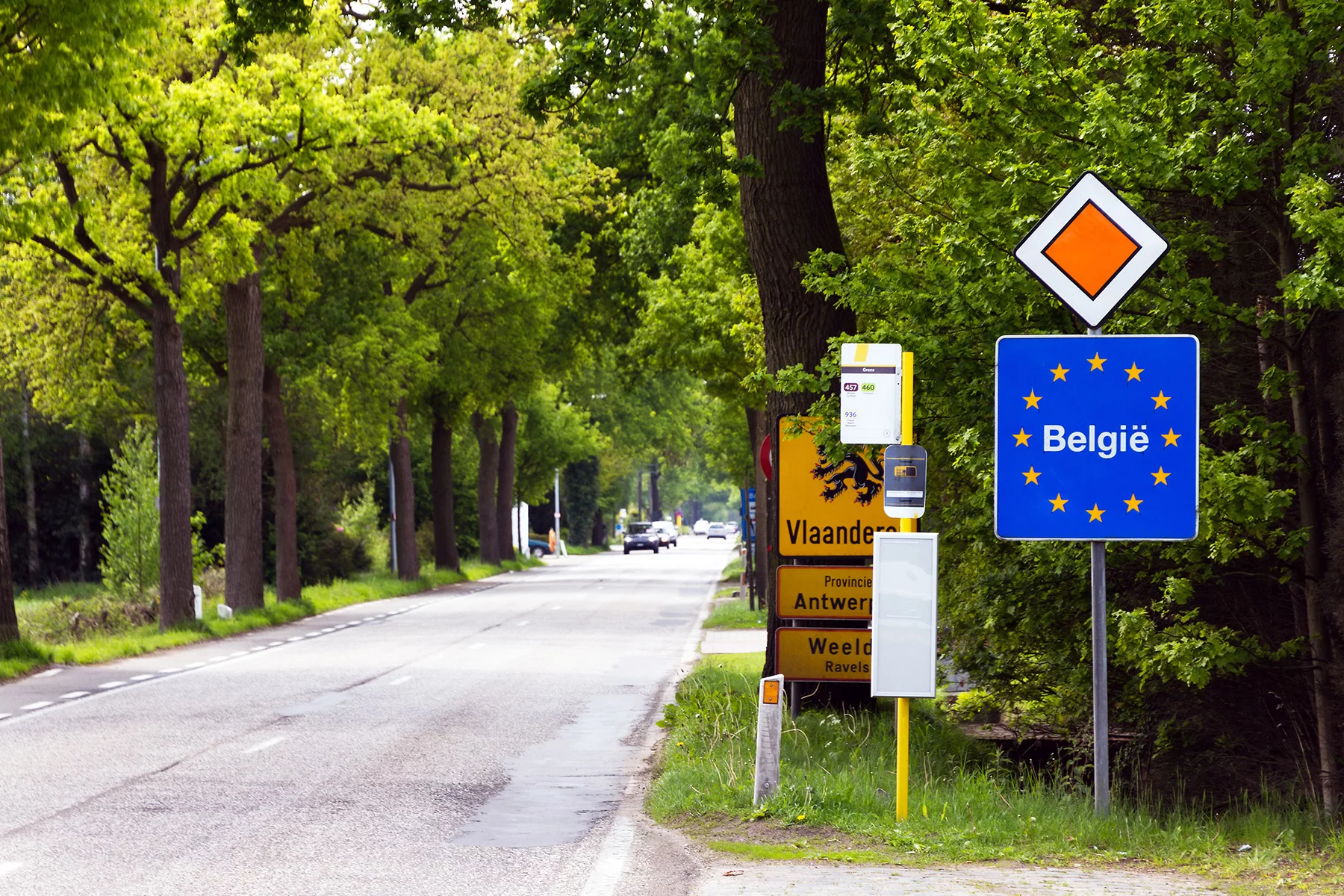
Type C visas are also issued to third-country nationals for:
- Attending cultural or sports events
- Carrying out a diplomatic or political visit
- Obtaining medical care at a Belgian hospital or clinic
Type C visa application for Belgium
You’ll need to submit your application at your local Belgian embassy or consulate. In addition to the general list of documents, you’ll need to provide proof of the purpose of your visit. This could be a letter from the seminar, training, or event organizer in Belgium, an enrolment letter from the short-term study program, or details of the medical treatment you’re planning to obtain. If your employer, university, or another third party is covering trip expenses, you’ll need to show proof of this.
The application fee for all type C visas is €90. There are certain exceptions to this. Diplomatic and official passport holders, for instance, do not need to pay a visa fee for official visits. Further, researchers traveling to Belgium to carry out scientific research may be exempt from visa costs.
Transit visa for Belgium
Airport transit visas allow you entry into the international zone of an airport while waiting for a connecting flight. In Belgium and the rest of the Schengen Area, this is the type A visa.
You’ll need to apply for a type A visa if you’re a third-country national passing through Belgium en route to a non-Schengen country. Seafarers making their way to a non-Schengen country must also apply for a transit visa to disembark from their vessel at a Belgian seaport.
Some countries have bilateral visa waiver agreements with the Schengen Area that exempt their citizens from transit visa requirements. You should submit your application for a transit visa at least 15 days before your planned date of travel at your local Belgian embassy or consulate. In addition to the visa application form and passport photo, you’ll need to provide proof of your onward journey.
The transit or type A visa does not allow entry into Belgium or any other Schengen country. If you plan to leave the airport or seaport, even for a short visit of a few hours, you’ll need to apply for a type C visa. The airport transit visa is usually issued for 24 hours. The procedure costs €90 – the same as a type C visa.
Long-stay Belgian visa
If you’re visiting Belgium for longer than 90 days (three months), you must apply for a type D (long-stay) visa. You may be considering temporary residence in Belgium for purposes such as following a study program, working as an au pair, taking up employment with a Belgian company for a fixed duration, or visiting family for a longer period.
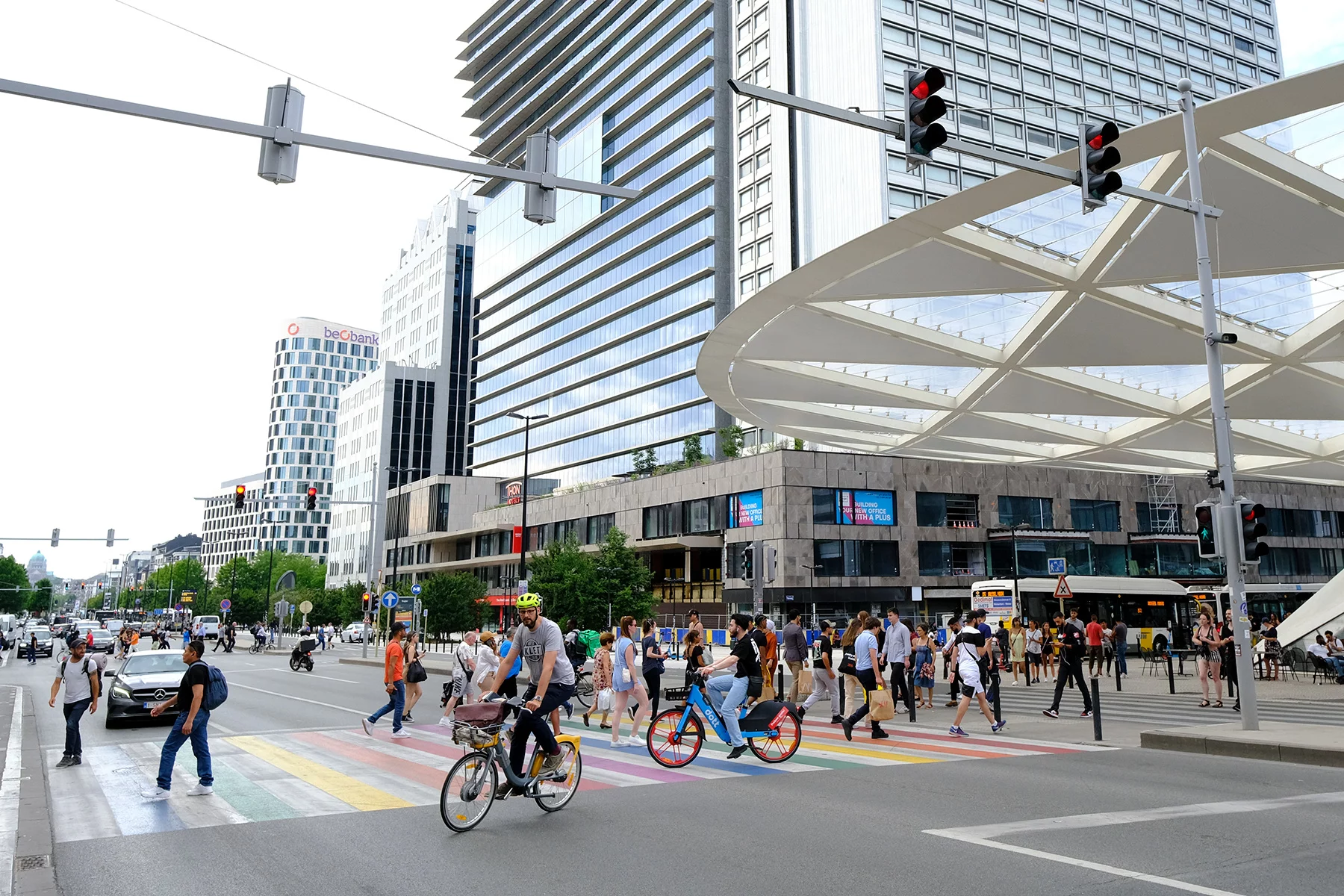
On the other hand, you may be planning to immigrate to Belgium and settle there permanently.
Long-stay visa application for Belgium
In both situations, the first step is to apply for a type D visa at your local Belgian embassy or consulate. The documents you need to submit will depend on the purpose of your stay. Nevertheless, all long-stay visa applications require that you submit:
- Filled-in visa application form
- Recent passport photograph
- Passport valid for the duration of the visa you’re applying for (at least 12 months)
- Proof of sufficient financial means to support yourself during your stay
- Proof of health insurance coverage for Belgium
- Legalized declaration of absence of a criminal record or convictions
- Proof of payment of the visa application fee, which is €180 for type D visas
Belgian study visas
Non-EU/EFTA students must apply for a type D visa to follow a study program in Belgium that exceeds 90 days (three months). To apply for this long-stay visa, you must show proof of your acceptance (e.g., an enrollment letter) to a study program at a recognized Belgian university or educational institution. Moreover, your studies must be your main occupation during your stay in Belgium.
You’ll also need to show proof of sufficient financial means. For the 2024–2025 academic year, the minimum amount for subsistence as a student is €803 per month.
After you arrive in Belgium, you will need to register with your local municipality within eight days and apply for a Belgian residence (eID) card. As a non-EU/EFTA student, you will receive an A card for a fixed duration. This usually covers the period of your study and must be renewed if you stay longer.
The permit also allows you to work in Belgium while at university. You can work a maximum of 20 hours per week during the academic period and longer during holidays.
EU/EFTA students do not require a visa to study in Belgium. However, they must still register with the local municipality and apply for a resident permit (EU card or K card, depending on their country).
Au pair visa in Belgium
Only au pairs from outside the EU require a Belgian visa and work permit. The host family will need to arrange these. The au pair and the host family must meet certain conditions. For instance, the au pair must be 18–26. They must also sign a contract with the host family detailing their work responsibilities.
Moreover, the host family must provide the au pair with accommodation, arrange their health insurance, and pay them €450 per month for expenses. You will need proof of these requirements for the visa and work permit application. The au pair visa cannot exceed 12 months.
Work visas in Belgium
All third-country nationals must have a work permit to work in Belgium. Certain professionals sent to work in Belgium for fewer than 90 days are exempt from work permit requirements. This exemption applies to professionals such as journalists, artists, athletes, researchers, sales representatives, government officials, and diplomats. However, they still need to apply for a type C (short-stay) visa and submit a Limosa declaration.

In other cases, you must first secure work in Belgium to apply for a work permit. Your Belgian employer will need to apply for the permit on your behalf. Depending on the work contract, they can apply for one of the following types of work permit:
Maximum 90 days or 90/180 days with a Schengen visa (also called type B work permit in Wallonia)
In the case of a work permit with a limit of 90 days, your employer must apply for and pick up the work permit from the Belgian municipality and send it to you. You can then go to your local Belgian embassy or consulate with the work permit to secure a short-stay visa for Belgium.
The 90/180 days work permit is only issued with a Schengen visa. The visa is valid for 180 days (six months). During this period, you can work in Belgium for a maximum of 90 days (three months). You can choose which days or months you’ll work during this period.
Fixed-term single permit
The fixed-term single permit allows the holder to work in Belgium for a period longer than 90 days (three months). Employers must submit applications on behalf of employees through the centralized digital service. The application procedure can take between two and four months. You’ll also need to apply for a type D (long-stay) visa to travel to Belgium.
In Belgium, you’ll need to report to your local municipality and apply for a residence card. Instead of receiving a separate work permit, your residence card will state your work authorization.
Work permit for entrepreneurs
Non-EU/EFTA nationals who want to start a business or become self-employed in Belgium need to apply for a professional card. This card acts as a permit to trade and carry out independent business activities. You can apply for the professional card at the same time as applying for your type D visa.
Regional authorities are responsible for issuing professional cards. More information is available on the relevant websites for the Flanders, Wallonia, and Brussels Capital regions.
Family reunification visa in Belgium
If you’re a non-EU/EFTA national, you can get a type D (long-stay) visa to accompany your spouse, registered partner, or parent living in Belgium as long as you fulfill certain conditions. You have to be able to prove your relationship, have suitable accommodation in Belgium, and show proof of sufficient funds to support the family’s living and health insurance costs.
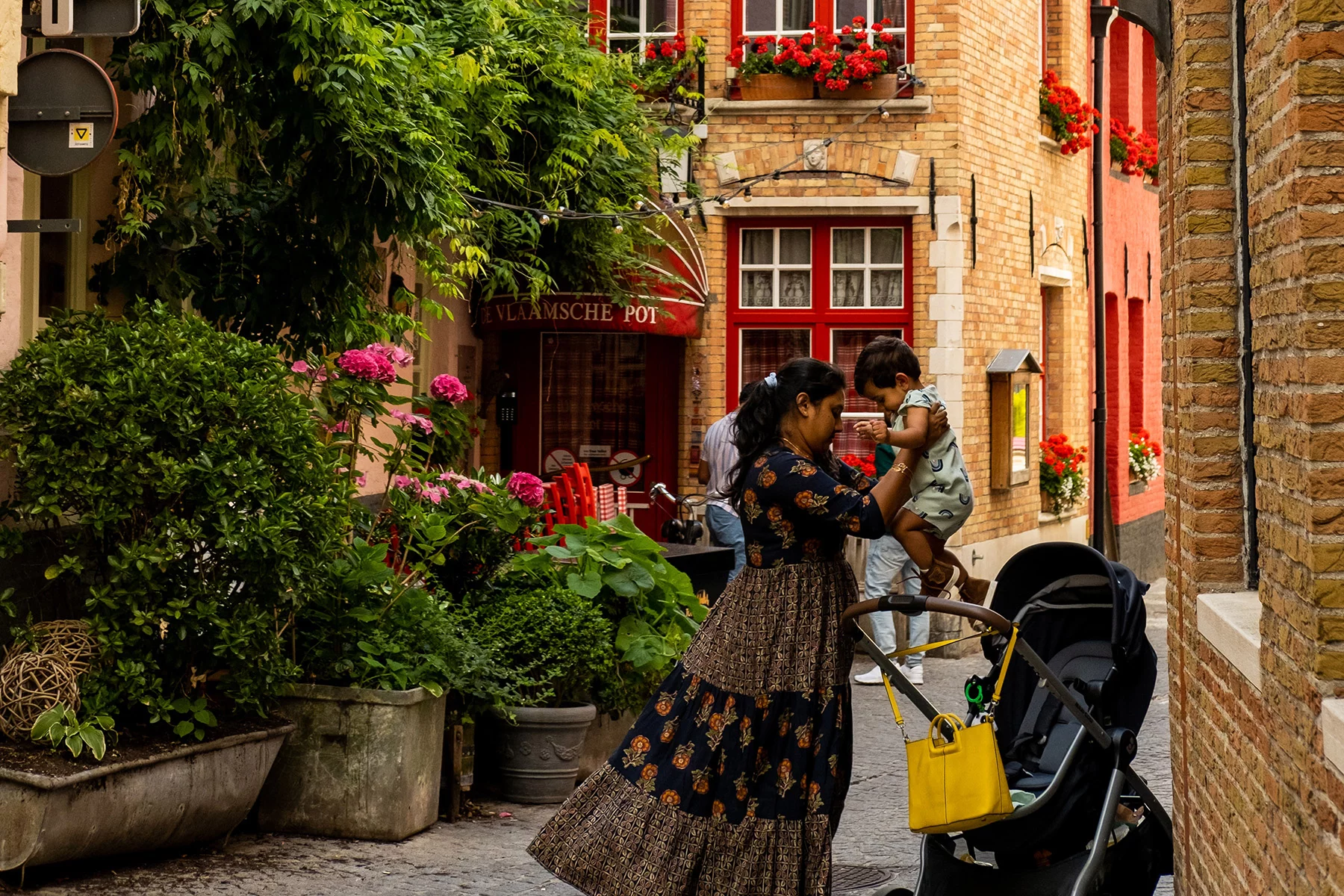
It can be worthwhile to employ an experienced immigration agency to arrange your visa. Although they will charge an additional fee, it can make the visa process more manageable and hassle-free.
Visas for adopted children
If you are adopting a child from overseas while living in Belgium, you’ll need to apply for a type D (long-stay) Belgian visa to bring your child home. In addition to the general visa application documents, you’ll need to provide your passports and residence permits, the child’s birth certificate, and completed adoption forms.
Children adopted by parents born in Belgium or with Belgian citizenship automatically obtain Belgian citizenship. You can find out more about inter-country adoption from the respective regional authorities (Dutch-, French-, and German-speaking regions).
Visa for retirement in Belgium
If you’re looking to retire to Belgium from a non-EU/EFTA country, you must first apply for a type D (long-stay) visa at your local Belgian embassy or consulate. One of the main requirements will be to show that you can support yourself without working. You can provide bank statements, pension statements, or proof of income from real estate for the last six months.
You will also need to supply a letter explaining your reasons for relocating to Belgium. Your application will be given preference if you can demonstrate ties to Belgium (e.g., family ties or having lived in the country before). Additionally, you may have to provide a medical certificate.
Belgian visas for digital nomads and remote workers
Belgium has no formal visa specifically for digital nomads and remote workers. However, if you’d like to work as a digital nomad in Belgium for a while, you can apply for a type C (short-stay) visa described earlier. Notably, the type C visa does not allow you to seek employment in Belgium. To work for a Belgian employer or as an entrepreneur in Belgium, you’ll need to apply for a work permit.

You must submit the visa application to your local Belgian embassy or consulate. The procedure costs €80. EU/EFTA nationals do not require a visa to travel to Belgium and work remotely.
Asylum seekers and refugees in Belgium
Belgium is a party to the Geneva Convention. This means that all foreigners who enter the country have the right to apply for international protection. The first step toward asylum in Belgium is applying to the Commissioner General for Refugees and Stateless Persons (CGRS). This happens at the arrival center in Brussels, managed by the Federal Agency for the Reception of Asylum Seekers (Fedasil).
At the arrival center, Fedasil carries out social and medical screenings and allocates applicants to a reception center. Here, they receive lodging, meals, and medical support. Belgium has a network of over 28,000 reception centers. In 2023, Belgium had around 35,160 asylum applications from EU countries, the seventh highest in the EU. Currently, the Belgian government also has a special procedure to provide temporary protection to Ukrainian citizens.
Decisions on asylum applications usually take around three to six months. Asylum seekers are interviewed about their application as part of the process. Successful applicants are either granted refugee status or subsidiary protection status. This gives them the right to live and work in Belgium, initially for a limited period. However, this can be extended to unlimited residence after a few years.
If the asylum case is rejected, the applicant can appeal to the Council for Alien Law Litigation (CALL) within 30 days. Rejected applicants cannot stay in Belgium and must leave within a specified period.
Arriving in Belgium
If you arrive in Belgium on a type C (short-stay) visa, you have three days to report your arrival to the local municipal office/town hall (Dutch: gemeentehuis, French: maison communale). EU/EFTA citizens staying in private accommodation (i.e., not a hotel) for a short time also have to report their arrival to the town hall within 10 days. The municipality will then give you the Annex 3ter form (official declaration of arrival) that specifies the legal period of your stay in Belgium.
If you arrive in Belgium on a type D (long-stay) visa, you have eight working days to go to your local municipal office/town hall for registration on the Foreigner’s Register and to apply for your Belgian residence (eID) card. Besides registration, you will also need to set up the necessary aspects for living in Belgium, such as a bank account, health insurance, and more.
Residence and citizenship in Belgium
Belgium has different types of residence cards for foreign nationals. Initially, foreign nationals are granted residence status for fixed terms between one to five years, depending on the purpose of their stay in Belgium.
You’ll need to apply for your residence card at the local municipal office/town hall. For this, take your passport, work permit and work contract (if applicable), and passport photos. You’ll also need to provide proof of health insurance. The residence application procedure can take up to three months. Application fees depend on the purpose of your stay in Belgium.
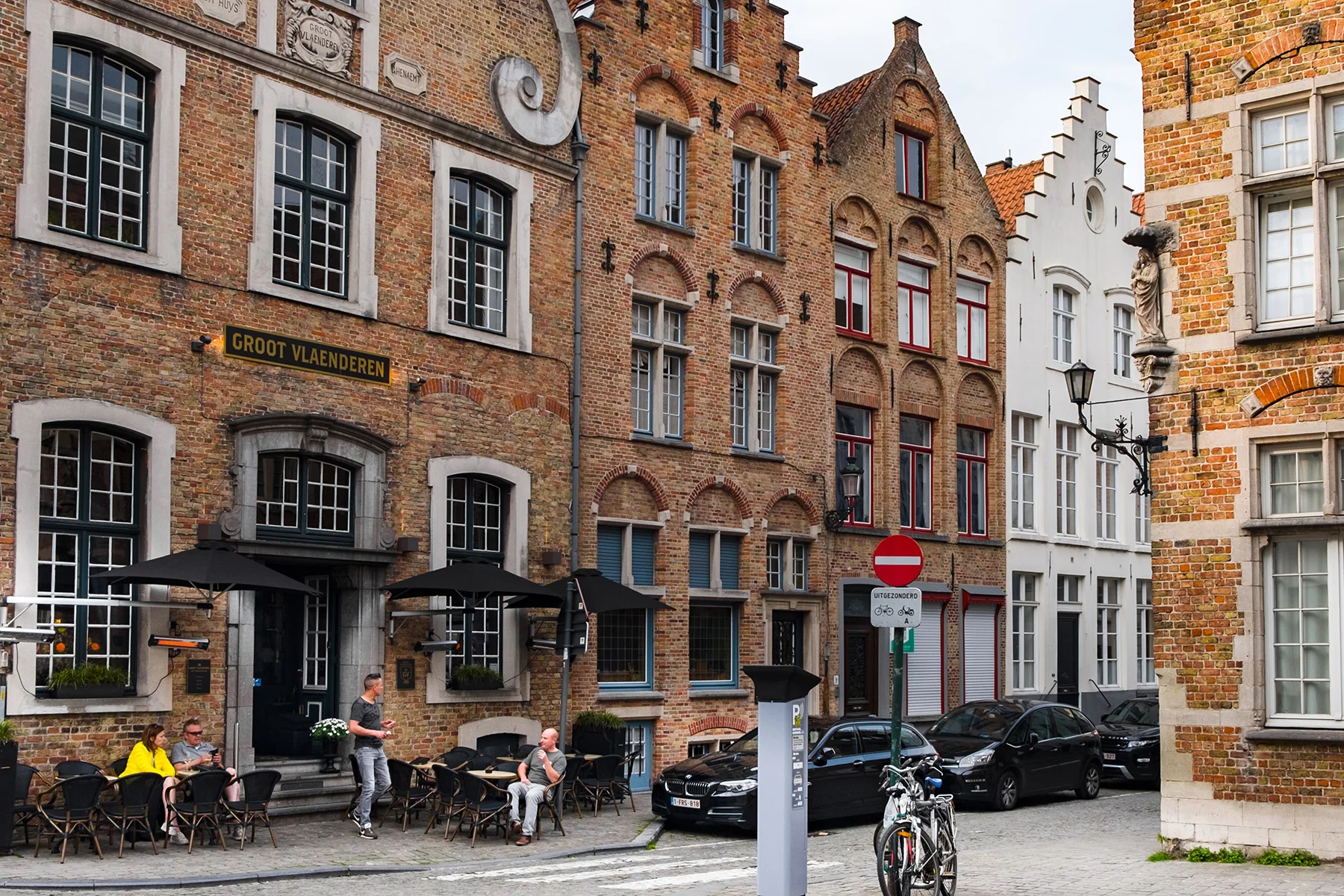
Once your application is processed and approved, you’ll be issued a residence card that specifies the amount of time you’re entitled to stay in Belgium and your work authorization. After you live in Belgium for five years, you may qualify for permanent residence. Certain residents will also be able to apply for Belgian nationality if they fulfill certain conditions. Both allow you to stay in Belgium indefinitely, working or otherwise, under similar conditions as Belgian citizens.
If you hold a Blue Card from another EU member state and have lived elsewhere in the EU for a certain period, this time can count towards your calculation of five years.
Appeals and complaints
If you find inadequate grounds for the rejection of your visa and would like to dispute the decision, you can write an appeal letter to the Immigration Office. This is only recommended if you can provide sufficient evidence of the incorrect processing of your documents and application. You should keep in mind that it can take a few weeks before you receive a response, and it is often unlikely the decision will be repealed.
Written appeals against work permit rejections can be lodged with the respective regional authorities (Flanders, Wallonia, and Brussels Capital). Appeals against the rejection of an asylum application can be lodged with the Council for Alien Law Litigation (CALL). All appeals must be made within 30 days of the decision.
Useful resources
- IBZ – Belgian Immigration Office
- FPS Foreign Affairs – Belgian Federal Public Service for Foreign Affairs, Foreign Trade, and Development Cooperation
- belgium.be – Belgian government’s official information and services portal
- Vreemdelingenrecht en Internationaal Familierecht (Immigration Law and International Family Law) – Dutch website for legal aspects related to immigration in Belgium
- Association pour le Droit des Étrangers (Association for the Rights of Foreigners) – French website for legal aspects and factsheets related to immigration in Belgium
- eID – Information on Belgium’s electronic identity card
- Commissioner of Brussels – English website with information on visas, immigration and residence requirements for Belgian expats
